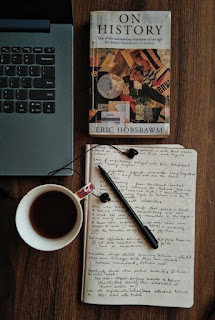Featured
- Get link
- X
- Other Apps
Resumes for the History Major -- What Looks Good on the History Major's Resume?
I remember the first time I built a formal resume as part of an assignment in my high school Government & Economics class. It was that odd part of senior year, when you’ve already finished all the major tests and assignments, but there’s still a week or two left in the school year. My teacher told me that he liked the formatting of my resume very much, and found it was well suited to the “job” I had crafted it for.
However, the resume I use now is much different than the one I made two years ago. In my opinion, my current one has more aesthetic appeal, is better organized, and is more tailored to fit whatever position I happen to be using it for at the time. Of course, this results from gaining more experience in more jobs and extracurricular opportunities.
Here are some skills and opportunities that are best suited to the history major. They emphasize skills that are important in the major, and will also be useful in a career setting.
Tutoring
If you want to be a teacher, this one is especially important for you. Whether its tutoring students in a specific history class, or working in a more general writing center, tutoring always looks great on any resume. It not only shows that you have mastery of that content, but also that you’re someone who can work well with others. Being able to help peers is important in both school and work life, and is an experience that can easily be gained through tutoring.
Writing
There are so many different ways you can take this one. You could write for an on or off-campus publication, or do technical writing for some department at your university (I knew a girl who had a job drafting up letters to send to potential university donors). Although in the history major our writing is mostly analysis and research-driven, working with other forms of writing will help diversify your skills. Writing is such an important aspect of the history major, so it’s important to get as much practice in as possible.
Research
This one almost goes without saying. As history students, almost all of our undergraduate experience is spent doing some sort of research. Why not do a little more? Universities often have research opportunities that last a few weeks or even a whole semester. Some of these may be paid, and others are unpaid internship-like opportunities. Being a part of a larger research project helps with team-building skills, as well as exposes you to what a job environment could be like.
Internships
Internships are usually unpaid opportunities, which may not always be feasible for everyone. However, for those who have the opportunity and ability to do so, internships are great opportunities to gain experiences in a specific sector. Interns take on many of the responsibilities of an entry level-employee. These experiences can be immensely helpful in giving you an understanding of what a certain career will be like, and will also help you build connections to potential colleagues. Letters of recommendation, anyone?
Needless to say, DON’T consider this an exhaustive list by any means. These list summarizes only a few items that can look good on a history major’s resume. There are SO many jobs and volunteer opportunities out there that can help you achieve your specific goals.
I hope you found this post helpful. Stay tuned for our next blog post, which will be a little different 👀
picture credit: https://www.pinterest.com/pin/173740498113581456/
- Get link
- X
- Other Apps
Popular Posts
7 Things to Keep in Mind When Registering for Classes
- Get link
- X
- Other Apps



Comments
Post a Comment